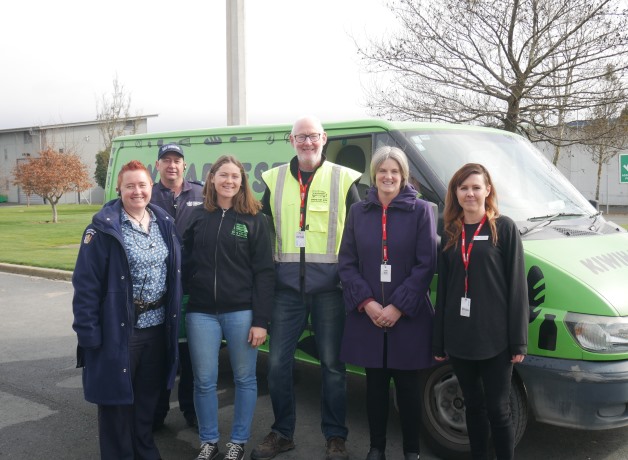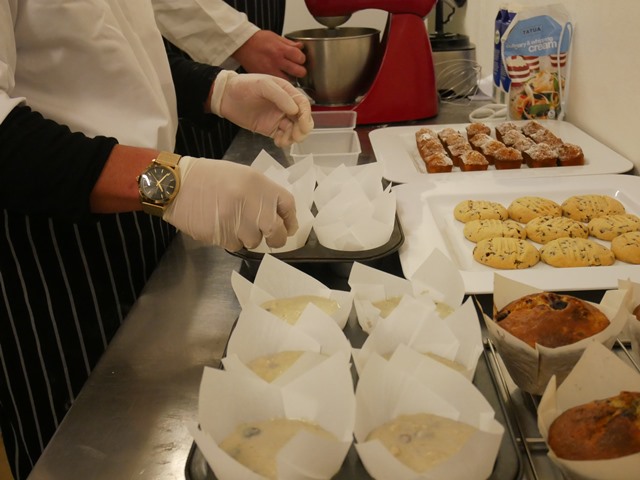A new collaborative initiative is underway in Milton, Otago to feed lunch to local school children during term time.
The aim of this programme is to make sure local school children have the nutrition to sustain them through the school day and have the best chance to learn.

OCF’s role in “Feeding our Kids” is to prepare and produce food in line with the numbers and needs identified by schools, the food products provided by food suppliers and Ministry of Health guidelines.
Lunches are produced by men involved in the prison’s catering and hospitality programme. A separate area of the kitchen has been set up for school lunch production. All men working in the kitchen have food hygiene and handling qualifications.
The men are very enthusiastic about the opportunity to participate in a positive, meaningful programme. Through the project, men in the kitchen are learning more about food nutrition, practicing their cooking and baking skills to make healthy food from a range of seasonal products or whatever is available. For example; they have recently been delivered a very large amount of beetroot and the men are turning this into a wide range of low sugar, healthy snacks, cakes and relish for sandwiches, short and longer store foods - a challenge and opportunity not usually available in the prison.
Many of the men say they know what it was like to be hungry when they were a child and they feel this would have made a difference for them (“may even have been a reason to go to school,” says one of the men making lunches).

Project Bruce: OCF has a long running partnership with Project Bruce which is the lead partner in the initiative. Project Bruce is a 3-year community-led development project for the people of Tokomairiro-Milton, Waihola, Taieri Mouth and all the rural bits in-between. Project Bruce is hosted by the Milton Community Health Trust. The health trust has an interest in building healthy and resilient communities in the area in which it operates. Project Bruce is governed by a 12-member steering committee consisting of community leaders and representatives from a diverse range of groups within the Bruce ward. Project Bruce liaises with schools, Kiwi Harvest and other food donors. They collate the student numbers and needs, deliver food to OCF for production of lunches and distribute the lunches to the schools.
Corrections: OCF will provide food preparation labour through its prison kitchen and Catering and Hospitality trade training. The prison kitchen will create nutritious lunches for school children in line with Ministry of Health guidelines, the food made available through KiwiHarvest and the dietary needs of the students (as advised by the schools).
KiwiHarvest: collect food from donor organisations and supply this to Project Bruce to supply to OCF. KiwiHarvest collect good food before it goes to waste and get it to those in need. KiwiHarvest reduces the negative impacts of food waste on our environment by redistributing excess food; helping to create lasting positive social change by nourishing those in need.
Local Schools:The schools mange communication with parents and ascertain the numbers and needs of the children. They will provide numbers of students wanting a lunch, dietary needs and will distribute the food appropriately. The schools will advise parents that there are some allergies and needs the project wont be able to cater for and that products (like nuts) are also used in the kitchen environment.

